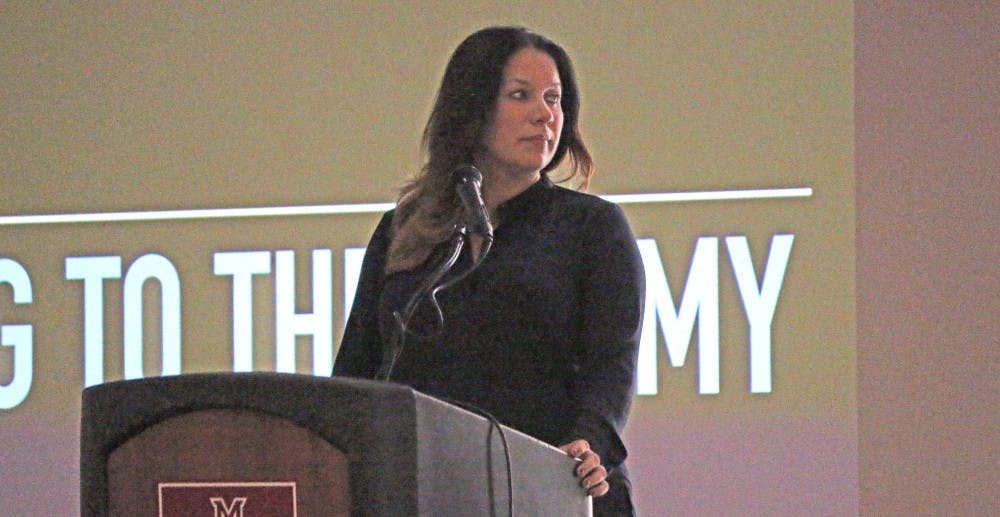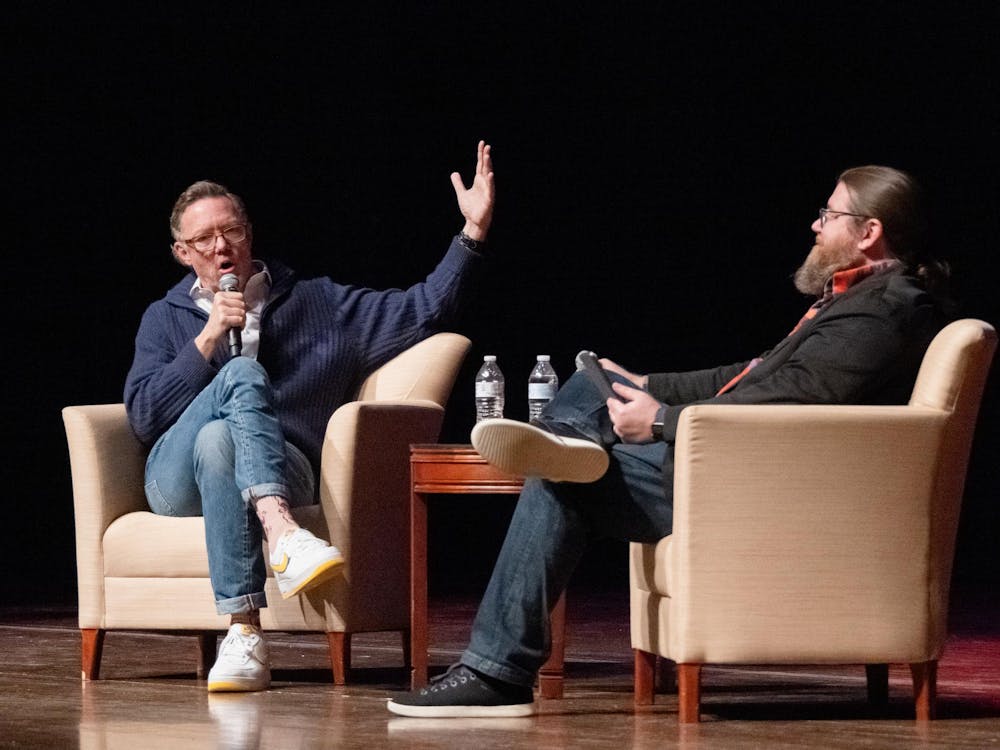Journalist Rukmini Callimachi told her rapt audience that it's important for people to get the full story from all sides of the War on Terror in her lecture last week titled "Speaking to the Enemy: The Making of the 'Caliphate' Podcast" on Wednesday, March 13.
Callimachi is an ISIS expert and correspondent for The New York Times. She has been described as "arguably the best reporter on the most important beat in the world," according to a WIRED magazine story.
The department of comparative religion sponsored the lecture, and it was held in the Shriver Center as part of the 2018-19 Arthur C. Wikenden Memorial Lecture Series.
"My personal journey brought me to this beat, which convinced me that the only accurate way to report on this beat is by also seeking to speak to the beat itself and speaking to its members: speaking to the enemy," Callimachi said.
Callimachi has covered terrorism since 2013 and has been a Pulitzer Prize finalist three times over the course of her career. Her New York Times feature, "The ISIS Files," details how and why the Islamic State in Iraq and Syria has been able to stay in power for so long. Her podcast, "Caliphate," maps the rise and spread of ISIS.
Callimachi was seen by some as a controversial choice of lecturer. In 2017, Callimachi took a large number of files from abandoned ISIS militant buildings in the form of documents and hard drives. Rather than consult the Iraqi government for permission to remove the war documents from the country, she took them back to the United States for her reporting. She faced criticism from academics and legal scholars who argued her actions set a "dangerous precedent for the plundering of material and cultural heritage in conflict zones."
Callimachi has traveled to the heart of the terror conflicts to try to give the world the full story.
"I believe that the work I do is worth it, that the War on Terror is one of the most important stories of our age," Callimachi said.
She seeks to find the most information by reporting on the "other side"-- the other side being ISIS.
"Most of the coverage of ISIS doesn't even try to reach the other side," she said. "That's because [ISIS] is what we as a society see as the worst people in the world... Speaking to the other side is essentially speaking to the boogie man."
Callimachi talked about her personal experiences reporting on ISIS and described the dark subject matter she has reported on. She played an audio recording of her conversation with an ISIS member, in which they talked about the first murder he committed for the terror group.
"What I've learned on this beat, which I've now been covering for seven years, is that there is an unbelievable amount of misinformation surrounding this group," Callimachi said. "In my opinion, [that's] because this is the only beat I can think of in the journalism realm where reporters routinely only speak to one side."
Enjoy what you're reading?
Signup for our newsletter
After the lecture, there was a panel discussion where attendees were able to discuss the topic with Callimachi.
Inaara Ladha, a sophomore international studies and comparative religion major, said she enjoyed hearing Callimachi speak.
"I thought this was a really nice non-academic perspective on working in the Middle East," Ladha said. "I think a lot of times ... We can get locked into just talking to professors, and a lot of lectures are professors - which is very important - but I thought it was really nice to have a non-professor speak to us."




